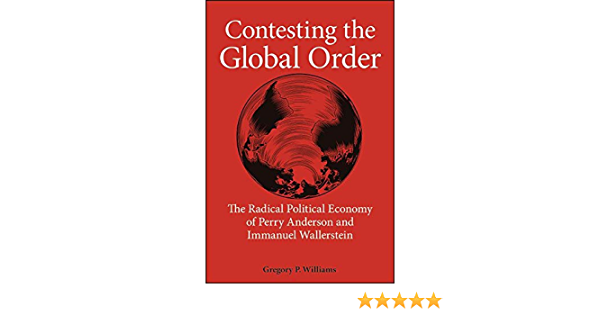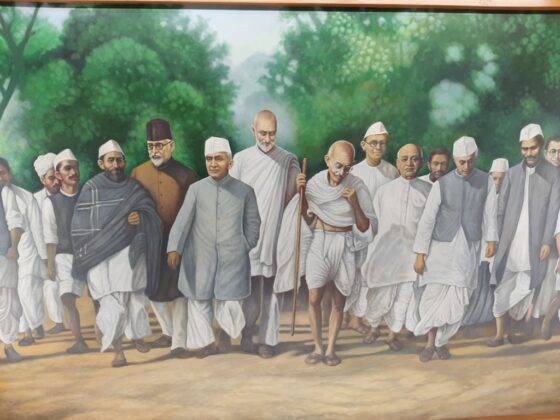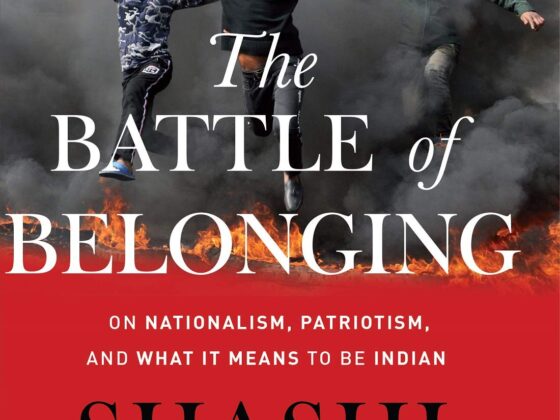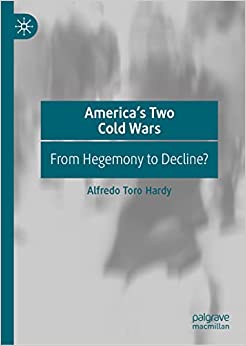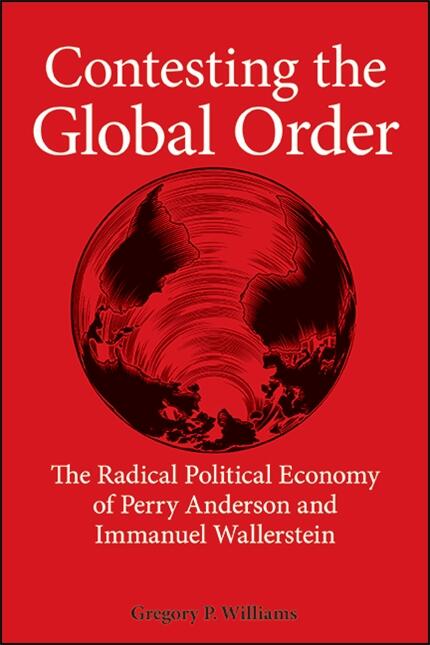
Book Name: Contesting the Global Order – The Radical Political Economy of Perry Anderson and Immanuel Wallerstein
Author: Gregory P Williams
Publisher: SUNY Press, 2020
Contesting the Global Order is a comparative intellectual biography of Immanuel Wallerstein and Perry Anderson, two leading and prolific intellectuals of the Left since the end of the Second World War. Williams opens the book by relating their ideas to two main explanations offered in the wake of the global crisis of 2008: the prevailing explanation and the unconventional explanation. The former, devised by mainstream economists and punditry, explains the crisis with reference to a number of recent factors. This implies that this was a crisis within capitalism and, as such, all that the system needed was a course correction, if perhaps a drastic one. The unconventional explanation, which the books’ protagonists subscribe to, holds that what happened in 2008 and after has been a crisis of capitalism. It is only the latest one among many in the history of this ever violently gyrating system, and it is most certainly not the last. Therefore, its explanation must be sought in long-term processes and at the macro-structural level.

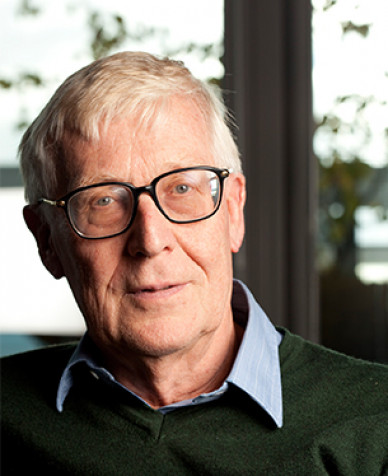
This opening move not only helps readers to relate the book’s subject material with contemporary debates on global capitalism and its crisis, but also associates Wallerstein and Anderson to the radical wing of the field of International Political Economy. Williams tells us that, as influential texts of Radical Political Economy, their works have repeatedly returned to three key issues: “totalities as an object of study; the origins and operations of capitalism; and the role of agency in determining behavior” (p.9). With these guiding themes of comparison at hand, Williams proceeds onto a chronological narrative analysis distributed over seven chapters and two ‘Intermissions,’ essentially one mini-chapter for each thinker that deals with a specific issue in their intellectual biography.
Chapters 1 and 2 together provide an overview of Anderson’s and Wallerstein’s early years as scholars and the influences behind their ideas. In the first, Williams introduces their early intellectual formations against the backdrop of intellectual battles of interwar and postwar years. He defines these years as cosmopolitan beginnings for both. It appears that, for Williams, Anderson’s early intellectual journey and his involvement with the British New Left is more interesting than Wallerstein’s conventional academic career largely restricted to Columbia University, as the former receives almost twice as many pages dedicated to his story. The second chapter presents a very well-written account on the intellectual lineages of Wallerstein’s and Anderson’s theories. For the former, Williams shows the influence of Frantz Fanon, Fernand Braudel, and Karl Polanyi (and later Ilya Prigogine). In the case of Anderson, the key names listed are Edward Gibbon, Jean-Paul Sartre, Georg Lukács, and Lucio Colletti. An important point that we get from this chapter is that, while already established scholars in their thirties, Wallerstein and Anderson never ceased to learn from others throughout their careers.
The momentous year of 1968 and the revolutionary energies it generated are at the center of Chapter 3. In Wallerstein’s experience, 1968 offered the development of an indigenous socialist tradition in the US and provoked him to theorize the connections between that and the decolonization movements. For Anderson, the flare for socialism was fired not at home, but across the channel. The scale of revolt in France amazed him and his New Left Review (NLR) colleagues; “the opportunity for socialism now seemed real” (p.62), even in an advanced capitalist society. It is with this energy and optimism that they turned to fashioning institutions that would help keep the revolutionary flame of 1968 going. If Wallerstein wanted universities as key institutions to encourage Third World movements, Anderson sought to turn the NLR into a vanguard organization for socialist politics. To achieve this, Williams notes in Chapter 4, they agreed on the premise that there was an urgent need to promote a “public and scholarly understanding of the historical processes that gave rise to the current historical order” (p.67). A sober sense of history was necessary for the building of a socialist future. To show how they did this, Williams takes the readers on a tour into the theoretical and historiographical building blocks of their magnum opuses published in 1974. If Chapter 3 is more about political agency, Chapter 4 delivers a sophisticated overview of the themes of totality and the origins of capitalism.
In the following chapters, the question of agency, the future of capitalism and the prospects for socialism come back to the forefront, but this time in the context of vanishing revolutionary energies in the face of two momentous developments. The first is the rise of neoliberalism in the 1980s and the onslaught it brought on to organized labor and to Left-wing politics more generally. The second is the collapse of the East European communist regimes. While both acknowledged the scale of ‘the defeat,’ Wallerstein and Anderson held different sentiments towards it. For Wallerstein, being optimistic or pessimistic about the role of human agency undoing capitalism’s ills did not matter. He thought capitalism as a world-system was in crisis, hence what mattered was what human agency could do when it collapsed. Anderson, on the hand, holds a pessimistic view. Capitalism’s victory was comprehensive and the Left failed to match the simple and appealing political message of the Right. Yet, Williams shows that Anderson also believes that workers of the twentieth and twenty-first century have developed class consciousness through their accumulated experience in organization and strategy. In order to recapture the working-class votes from the Right, what the Left needs to do, Anderson and Wallerstein agree, is to develop “a compelling social narrative, an explanation for the present that took stock of the past” (p.175).
Williams writes with clarity and economy, except perhaps in Chapter 5 where the analysis of Wallerstein’s world-systems theory could have been more concise. In certain points, Williams does not shy away from adding his input. For example, he casts doubt on the claim that Anderson’s third volume, successor to Passages and Lineages, never arrived because Robert Brenner (whose work Anderson has always held in high esteem) had dealt a decisive blow to the historical category of bourgeois revolutions (pp.113-114). There is also the occasional nugget produced by the meticulous archival work. We get to learn that in 1973 Robert Brenner requested a manuscript of the first volume of Wallerstein’s The Modern World-System and an exchange followed (p.170).
Above all, its comparative investigation is what makes Contesting the Global Order a distinctive contribution to Radical Political Economy. Not only is this a relatively uncommon undertaking in the field, it is also a challenging one. Comparative intellectual biographies require their authors to master the intellectual trajectories and outputs of their subjects, and then make the critical decision of choosing the right axes of comparison. Even more crucially, the actual substance of comparison has to be parsimoniously presented in order to be effective. Williams does a great job on all these scores. He makes the reasonably specialized discussions on the origins of capitalism and the concept of totality accessible to his readers. The comparative analysis expertly documents and discusses the different life trajectories, the changing intellectual sensibilities and the evolving political visions of Anderson and Wallerstein. And he manages this feat while also highlighting the relevance of his subjects for the contemporary political scene.
This Review is republished under the Creative Commons license.
This was published earlier in E-INTERNATIONAL RELATIONS.

